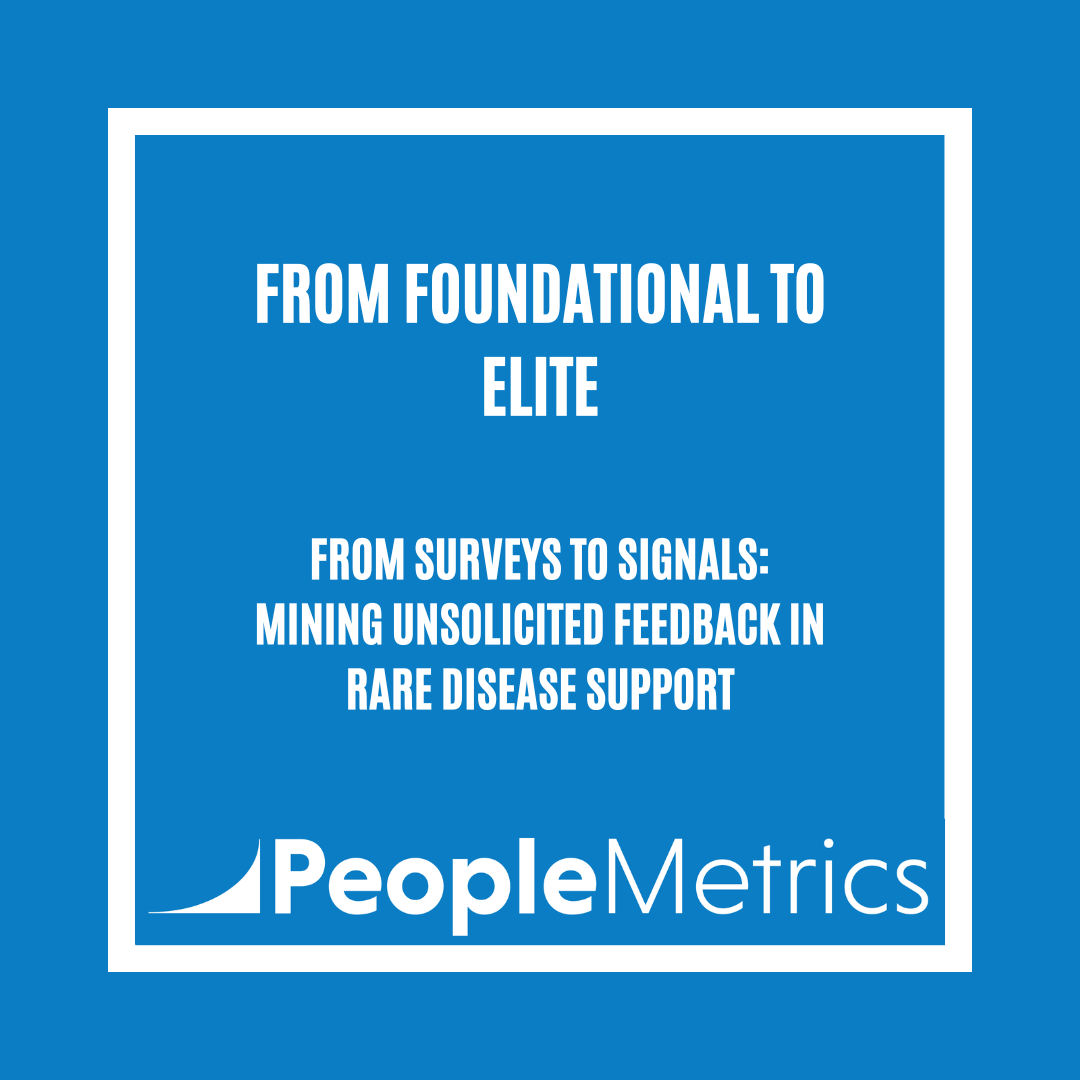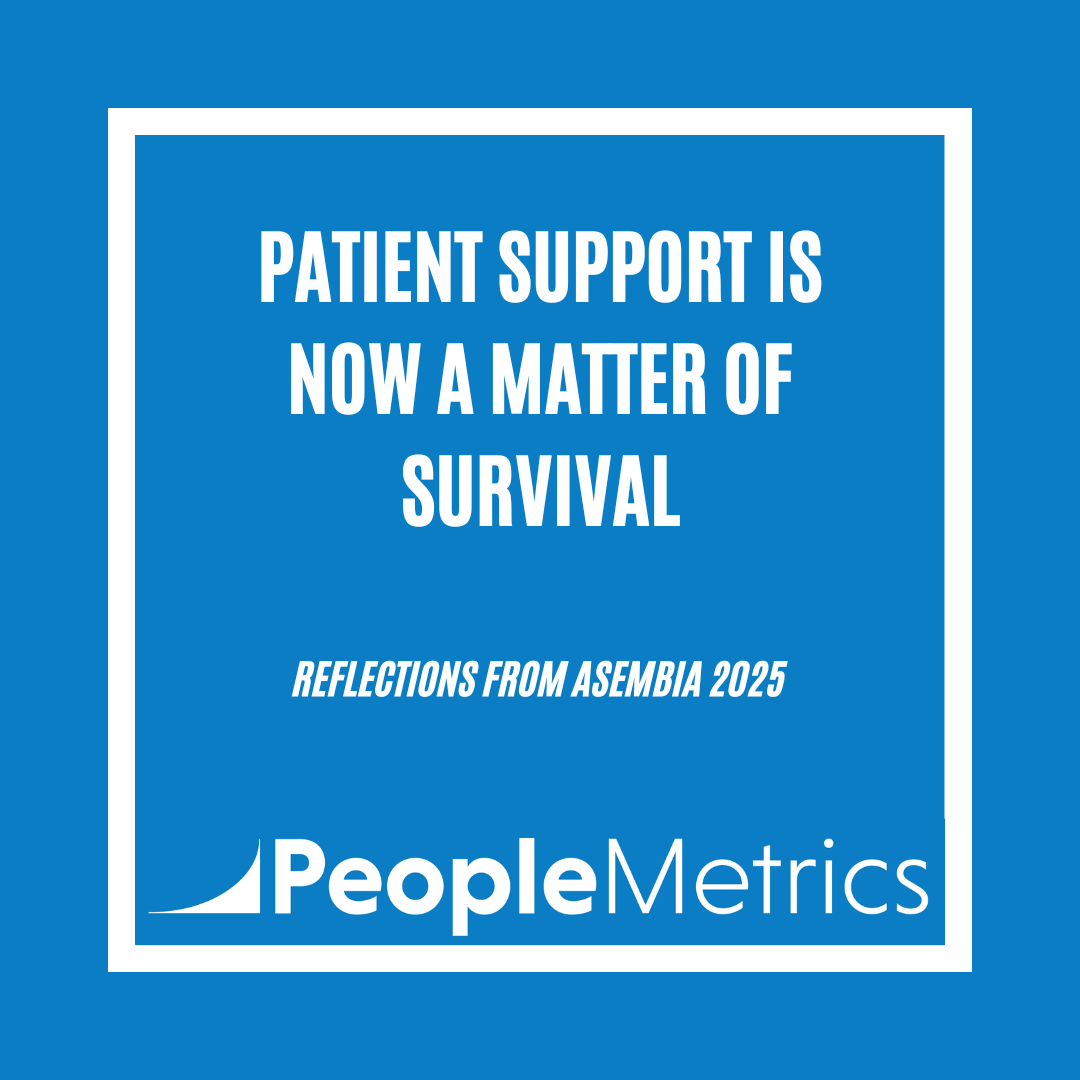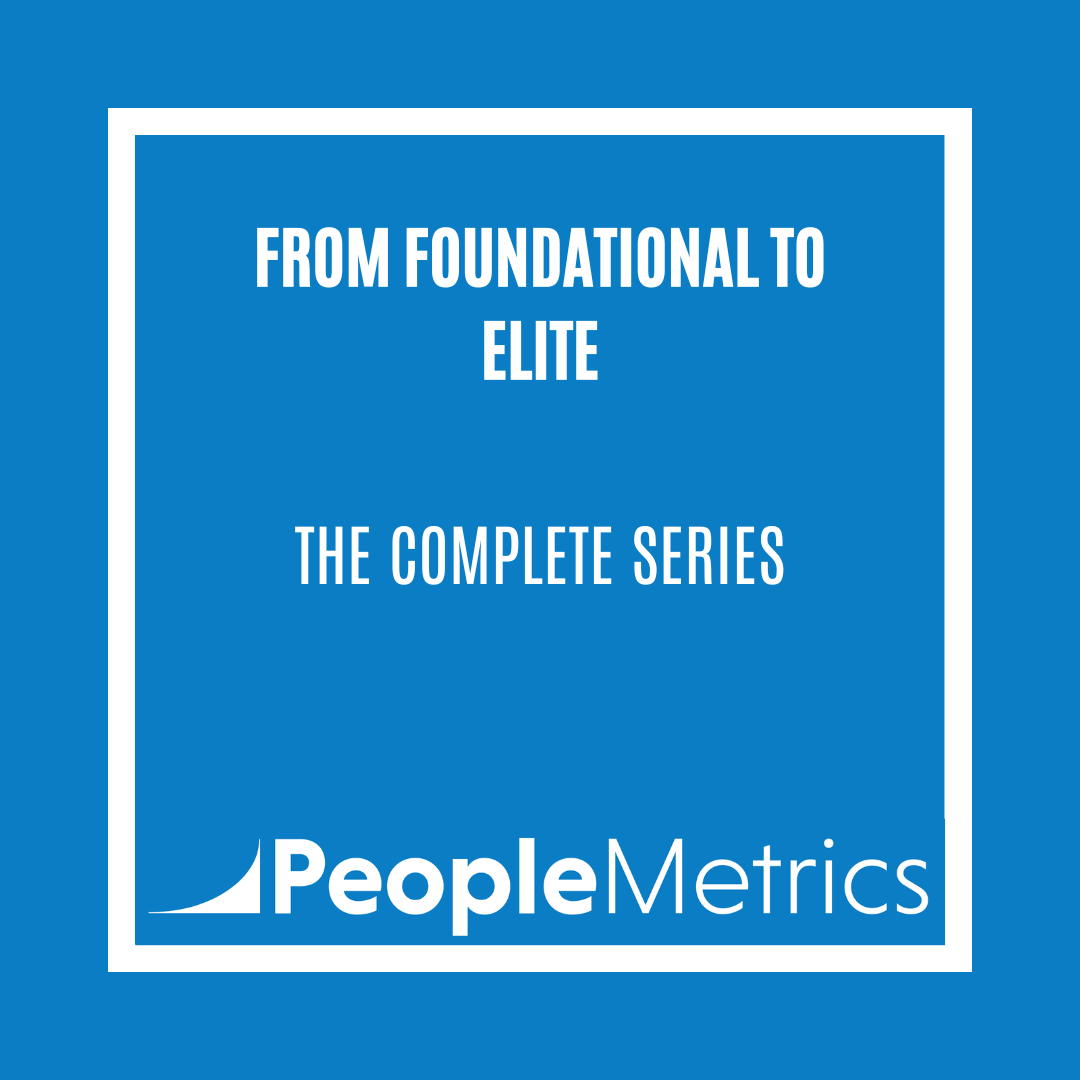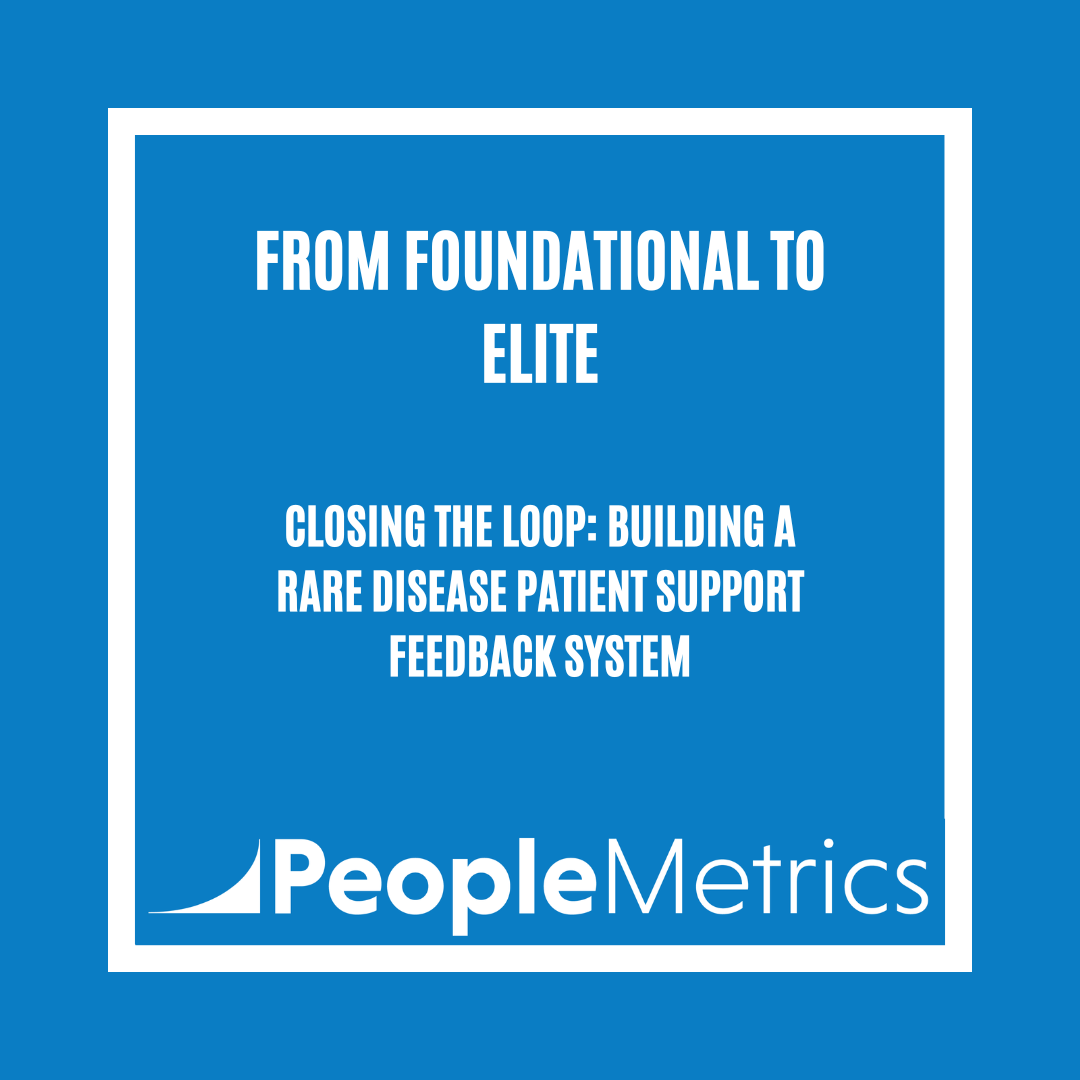By the time you’ve built a foundation of annual surveys, layered in onboarding and adherence check-ins, and started closing the loop — your rare disease patient support program is in a strong position!
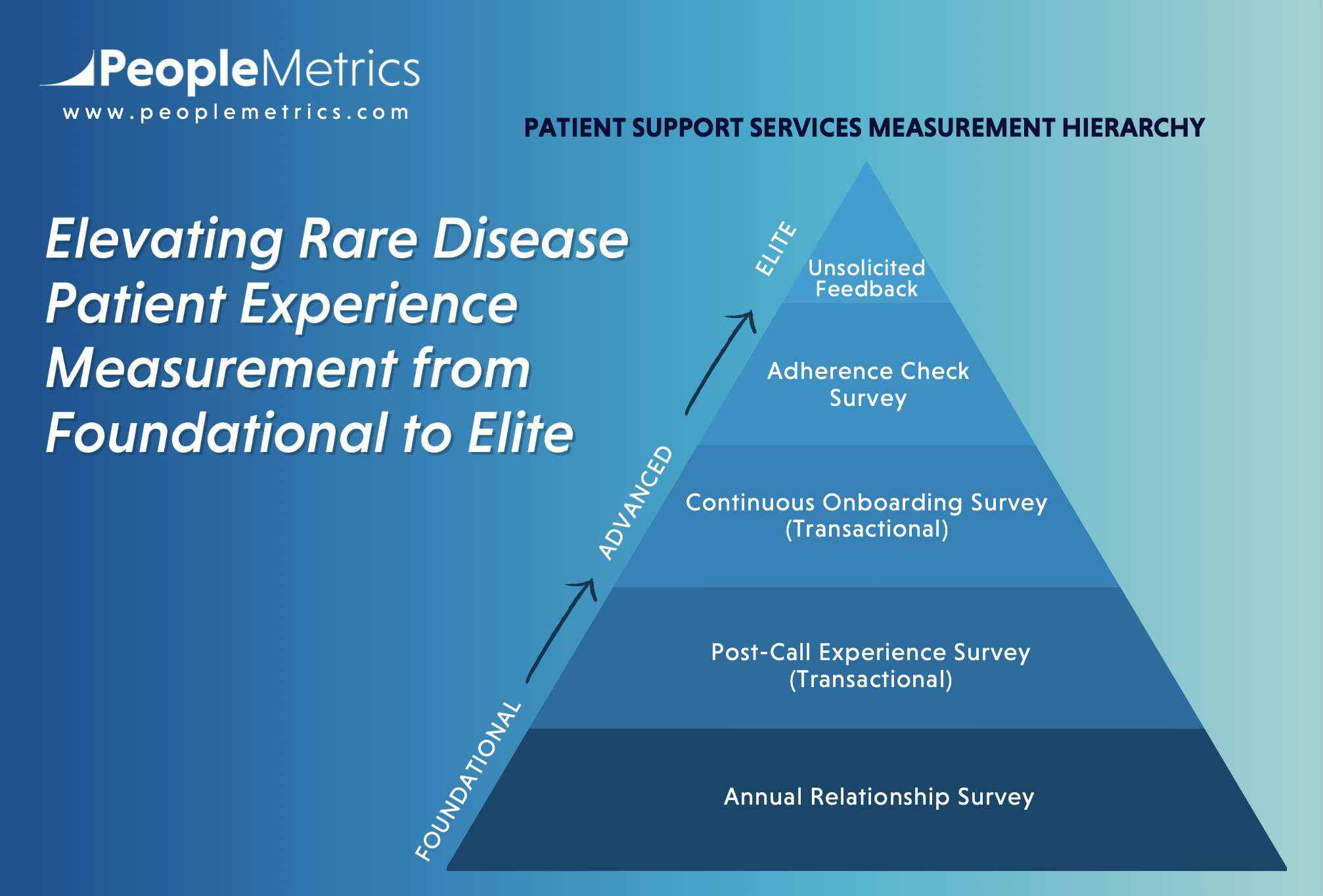
But there’s still one frontier that remains largely untapped:
Understanding what patients are telling you when they’re not filling out surveys.
This is where the elite level of patient experience measurement begins — where support teams start using operational data to mine unsolicited feedback and generate insights without even asking!
And it’s the most powerful tool yet for delivering a truly seamless, patient-centered experience.
What Is Unsolicited Feedback?
Unsolicited feedback comes from places you might not traditionally think of as “data sources”:
- Recorded calls with case managers
- Chat transcripts
- Email exchanges
- Notes in the CRM
- Operational data like wait times, call routing patterns, case escalations
These interactions contain rich, real-time stories about the patient journey, what’s not working, and how it feels to be in the program.
The problem? Without structure or strategy, this valuable information goes unused. That’s where AI comes in.
How AI Can Turns Signals Into Insights
AI tools can now analyze large volumes of unstructured feedback — quickly and accurately — to detect patterns and surface actionable insights. This includes:
- Sentiment analysis: understanding how patients feel across channels
- Topic modeling: grouping feedback into common themes
- Intent detection: identifying what patients are trying to achieve
- Anomaly detection: spotting emerging issues in real-time
When combined with operational metrics (like resolution times or first-touch success), these insights paint a complete picture of the support experience — one that’s both wide and deep.
And unlike surveys, this approach doesn’t rely on patients to respond. It listens automatically and continuously.
Why This Matters for Rare Disease Support
Rare disease patients are navigating some of the most complex and emotionally charged healthcare journeys imaginable. That makes listening — deeply, holistically, and often — even more critical.
Mining unsolicited feedback allows support programs to:
- Detect issues before patients even raise them
- Improve agent training with real examples
- Pinpoint where empathy is breaking down
- Eliminate operational friction
- Deliver a more responsive, human experience — at scale
It’s the closest thing we have to seeing the journey through the patient’s eyes.
What Elite Patient Support Programs Do Differently
Elite support programs don’t just listen more. They listen differently.
They:
- Integrate AI into their support operations — not just analytics teams
- Combine structured survey data with real-time, unstructured feedback
- Use insights to fuel patient service enhancements, not just reports
- Treat listening as a living, breathing part of the patient experience
If foundational surveys are a rearview mirror, unsolicited feedback is a windshield — showing you what’s coming and where to steer next.
Coming Up Next
In the final post of this series, we’ll connect the dots across all levels — foundational, advanced, elite — and show how to build a continuous feedback loop that drives systemic improvement in rare disease patient support.
Because listening is only powerful when it leads to action!
(If you are attending Asembia in Las Vegas the week of April 28th, stop by our booth (#1923), we would love to say hello!)

